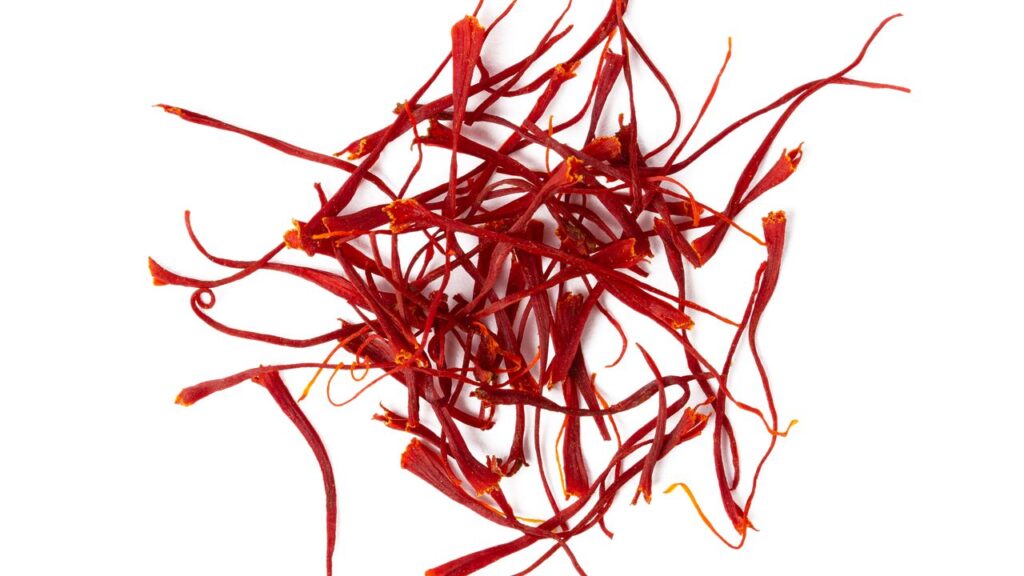If there’s one spice I’m familiar with, it’s saffron. My family comes from Iran, which means that saffron was added to almost every food in our home, from rice to dessert. When I left home, I was given a supply of saffron that lasted me for years; it only takes a pinch to lend a flavor that many describe as flowery, earthy, or bitter. To me, it simply tastes like home.
Between 200 and 400 tons of saffron are produced worldwide every year, around 90% in Iran. Besides its ubiquitousness in Persian cuisine, saffron is also frequently used in the cuisines of Spain, Italy, and Morocco.
Saffron has long been considered a niche ingredient elsewhere, but that seems to be changing. From saffron tea to lattes to capsules, suddenly the spice is appearing in cafes and on wellness shelves the world over. (Recently, I even discovered a saffron latte on the menu of a café in Cologne, Germany.)
With the growing popularity of saffron, I decided to look into the health benefits of my favorite childhood spice. Here’s what I discovered.
The health benefits of saffron
Saffron is generally known as a mood-booster—and not just because of the sunny, golden hue it imparts to food. Numerous clinical studies have explored the spice’s uplifting benefits and found that it does indeed have a mood-lifting effect on mild to moderate forms of depression.
“For ages, people have preferred the dried stigma of Crocus sativus (saffron) for medicinal and nutritional purposes in different parts of the world, mainly in Central Asia, Iran, China, India, Turkey, Algeria, and Europe,” another study that looked at the anti-depressant effects of saffron notes. “The most active biological compounds include crocetin, crocin, picrocrocin, and safranal, which are responsible for color, taste, and fragrance, respectively. These play a pivotal role in the central nervous system associated with anxiety and depression. These bioactive compounds are also neuroprotective and anxiolytic and can benefit learning and memory impairments.”
Additionally, some small studies have found that the spice may have pain-relieving, diuretic, and antispasmodic properties—all of which could help with menstrual cramps. “The existing evidence suggests that saffron has a potential to be used efficaciously to alleviate the symptoms of depression in different conditions from pre-menstrual to post-partum,” the aforementioned anti-depressant study also notes.


